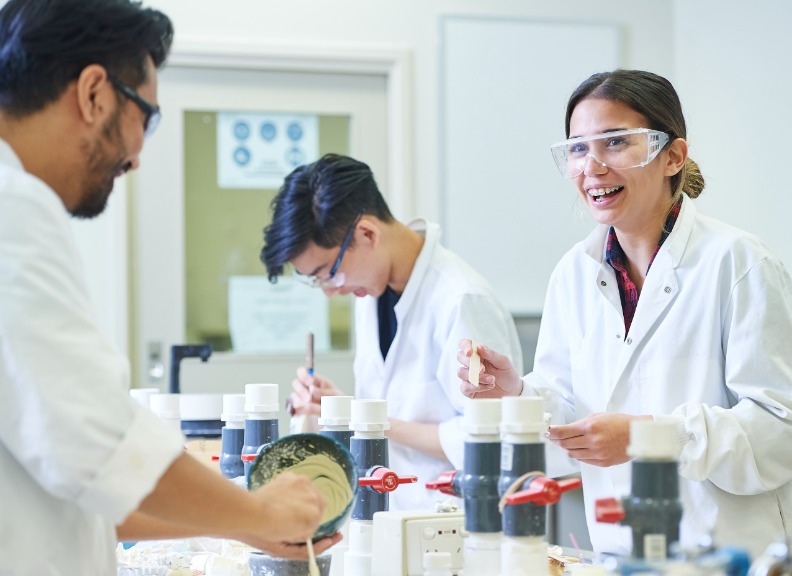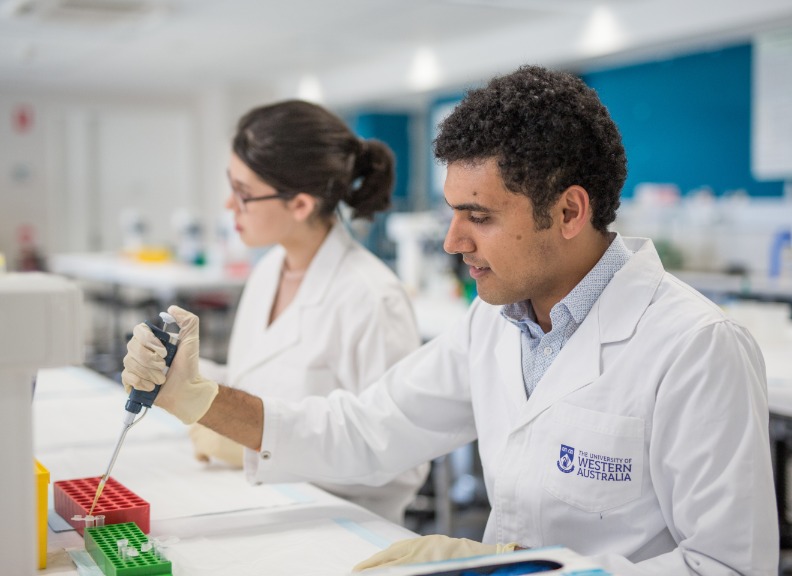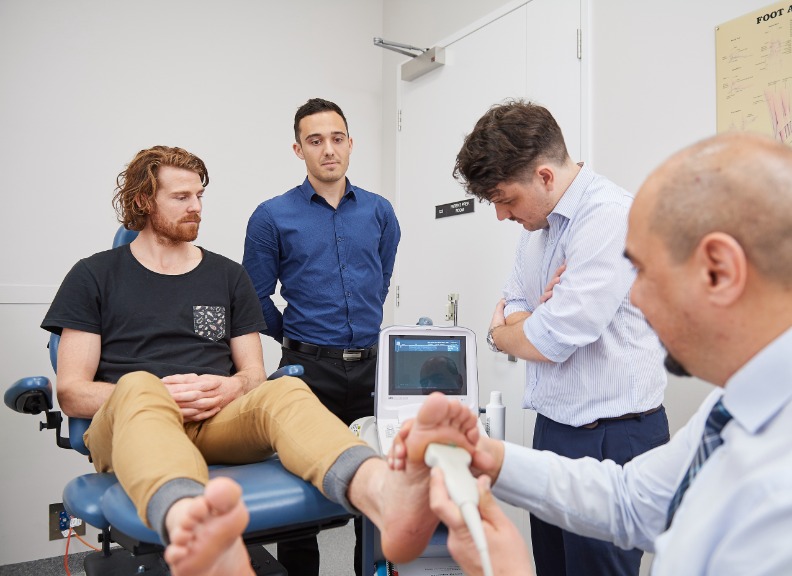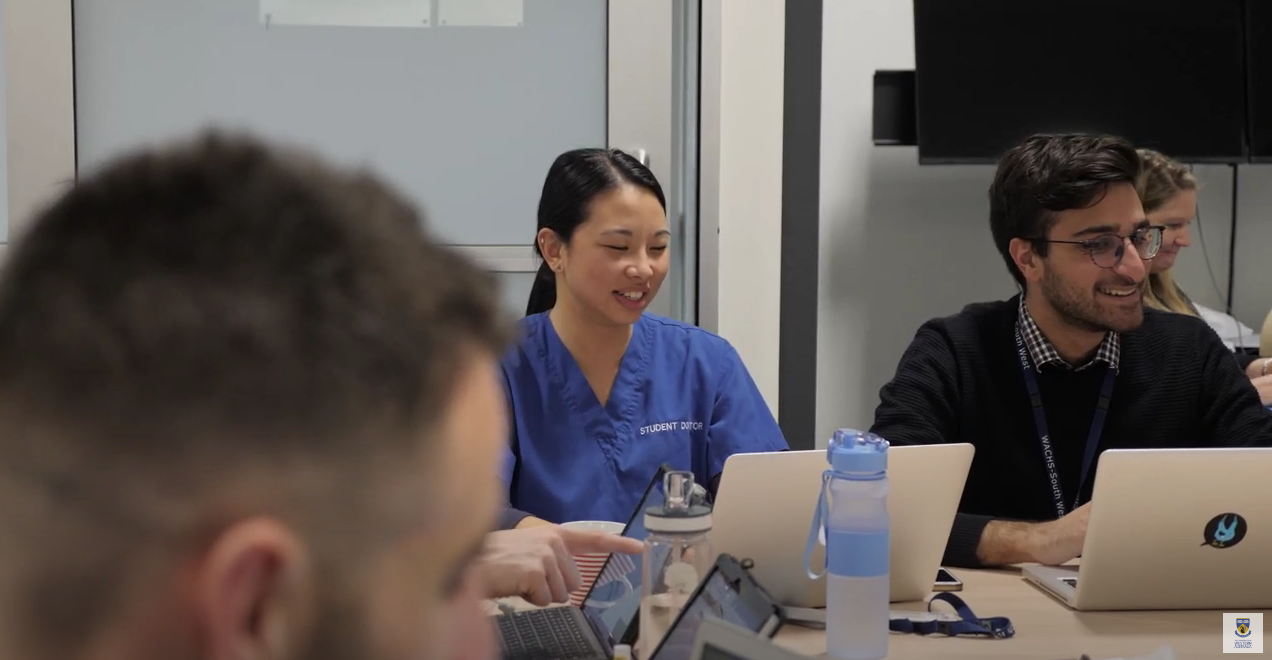Undergraduate
Bachelor of Biomedicine (Specialised)
This bachelor will allow you to learn and apply biological and physiological principles to clinical practice and research across a broad area of health and biomedical disciplines.
Majors available

Integrated Dental Sciences
This extended major leads into the Doctor of Dental Medicine. It covers the pre-clinical biomedical and dental sciences.

Integrated Medical Sciences and Clinical Practice
This extended major is a study option for students on an Assured Pathway to the Doctor of Medicine postgraduate degree.

Medical Science
Study Medical Science and learn about the mechanisms of health and human disease, whilst focusing on a preclinical specialisation.

Podiatric Health and Medical Sciences
This extended major leads into the Doctor of Podiatric Medicine. It covers pre-clinical biomedical and podiatric health sciences.
The learning experience
Fees and scholarships
Domestic Student Fees
For Commonwealth-supported places, student contribution amounts are charged by unit, based on area of study. For a fee estimate, go to the Fee Calculator and select “I want to price my units”. Fees are subject to annual indexation. Refer to the Handbook to identify the units required. More information on how fees are calculated.
Scholarships
Scholarships are available to students from a diverse range of backgrounds, including academic achievement, financial need, educational disadvantage, leadership and community service, artistic or sporting achievements, and being from a rural or remote area.
International Student Fees
Onshore international students are charged an annual course fee, charged per credit point at a rate dependent on the course in which the student is enrolled. Annual course fees are calculated based on an annual study load. Check the handbook to confirm the annual study load for your course.
Find out more about international student tuition fees and visit the fee calculator for the relevant course fees.
Fees are subject to annual indexation.
Scholarships
Scholarships are available to students from a diverse range of backgrounds, including academic achievement, financial need, educational disadvantage, leadership and community service, artistic or sporting achievements, and being from a rural or remote area.
Careers and further study
Related careers
- Audiologist
- Dentist
- Genetic Counsellor
- Medical practitioner
- Medical scientist (diagnostics)
- Medical/Biomedical researcher
- Microbiologist
- Optometrist
- Pharmacist
- Podiatrist
Entry requirements
Admission requirements
To be considered for this course you need to:
- achieve the University’s minimum entry score
- demonstrate English language competence
- satisfy any prerequisites for your preferred majors (refer to individual major descriptions for prerequisite details)
You can view the prerequisites and recommended subjects for your chosen course here.
View our admission requirements for specific information, depending on your education history.
Assured Pathway information
If you have a professional career in mind, take advantage of one of our Assured Pathways. An Assured Pathway gives you an assured place in one of our postgraduate professional courses (such as Law, Engineering or Medicine) from the start of your studies with us. The pathways combine a range of undergraduate and postgraduate courses, providing you with a clearer direction to your career of choice.Admission entry to UWA
We offer a number of other pathways for you to gain entry into our undergraduate degrees if you do not meet the standard admission requirements. Learn more about our admission entry pathways.
About the Bachelor of Biomedicine (Specialised)
The Bachelor of Biomedicine (Specialised) is a practical degree providing learning across a broad arena of health and medical disciplines, designed to articulate with UWA’s health professional degrees. Multiple specialisations within the biomedical disciplines are offered to enable breadth and depth of learning in your field of interest, including Aboriginal Health, Human Biology, Genetics, Biochemistry, Physiology, Pharmacology, Microbiology and Pathology.
Quick details
- Refer to relevant extended major
- February
- 3 years full-time
- BP056
- 112846M
Degree structure
The Bachelor of Biomedicine (Specialised) is a three year full time degree. Students will undertake one of four degree-specific extended majors, and may choose to undertake a minor.
Our facilities
UWA Bachelor of Biomedicine (Specialised) students have access to a range of world-class facilities that enhance your learning and give you hands-on experience before you enter the workplace.
These facilities include:
Why study Biomedicine
You'll learn to
- Gain in-depth understanding of how the human body functions in health and disease
- Develop essential skills that impact the health of people in our communities
- Choose your specialisation to gain expertise in the field, ensuring job-readiness
- For the assured pathway students - be guided by health professionals in clinical learning settings
Clinical Medicine at UWA is ranked 3rd in Australia and 35th in the world (GRAS 2023)
Popular minors available
Admission entry pathways
UWA offers a number of admission entry pathways for domestic and international students to be able to study with us. If your results do not qualify you for standard entry into the University, check our Admission entry pathways for one that suits you.
Health Students' Society
The Health Students' Society (HSS) is a student-run, not-for-profit organisation for undergraduates completing health-related majors at UWA. HSS provides social and education opportunities and encourages students to make the most of their time on campus and of university life. HSS offers a support network for members during their degrees and aims to enhance the university experience and raise the profile of graduates to prospective employees.
Career opportunities
This degree can lead to a variety of careers within the health and biomedical industries*, including in clinical practice; medical research; health management and policy; medical diagnostics; human genetics; pharmaceutical development and regulation; biotechnology and innovation; and science communication.
*postgraduate training may be required


